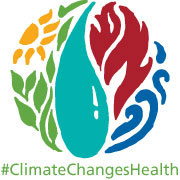
Have you or those you care about felt the physical and mental health effects of climate-related events, like extreme weather, heat or allergy seasons? What actions have you taken, and which solutions have worked for you in your community?
Personal experience makes you your own expert, and your story has more power to drive climate action than facts alone. Stories make climate change relatable by drawing on common experience and core human values, like health.
Compelling stories generate empathy and understanding. They take listeners on an emotional journey and offer a sense of hope that inspires positive change. APHA’s Center for Climate, Health and Equity is working to lift every voice to advocate for climate action today.
Storytelling Guide:
Check out Climate Storytelling: A Quick Guide (PDF) for more on the power of stories and guidance on good storytelling techniques.
Tiny Climate Chronicles:
Our 100-word story series features reader-submitted stories that highlight the health impacts of climate change and illustrate the ways we cope and overcome. Whether it’s our own or that of our loved ones and communities, health matters to everyone. Let’s share our personal experiences to inspire and empower action on climate change. Together we can build healthy, resilient communities — one story at a time.
We want to hear your story! Submit yours here. Each submission must be truthful, personal unpublished work. We encourage stories to be about 100 words each. Check out our guide (PDF) for tips on good storytelling, and email climatechange@apha.org with any questions. Read about APHA’s “Making Climate Change Personal for Effective Communication” training to learn more. We can’t wait to hear from you!
New!
 Residents of New Orleans, Louisiana's 7th Ward are taking action against the urban heat island effect and more frequent urban flooding in the area. Healthy Community Services has been engaging and teaching residents of this 80% African American community how to keep communities cooler by reforesting urban areas. It's a double benefit for residents, who now understand how air and surface temperatures affect people with chronic diseases such as asthma, diabetes and hypertension. These efforts are community driven, and residents have learned that, besides helping to clean the air, trees are capable of storm water management to help mitigate urban flooding. In our survey, 9 out of 10 residents here rated planting trees as a benefit to improving health outcomes. To date, within Healthy Community Services' 4x2-square-block research area, 77 trees and other green infrastructure interventions are reducing the effects of climate change. This neighborhood is transforming, and it is exciting.
Residents of New Orleans, Louisiana's 7th Ward are taking action against the urban heat island effect and more frequent urban flooding in the area. Healthy Community Services has been engaging and teaching residents of this 80% African American community how to keep communities cooler by reforesting urban areas. It's a double benefit for residents, who now understand how air and surface temperatures affect people with chronic diseases such as asthma, diabetes and hypertension. These efforts are community driven, and residents have learned that, besides helping to clean the air, trees are capable of storm water management to help mitigate urban flooding. In our survey, 9 out of 10 residents here rated planting trees as a benefit to improving health outcomes. To date, within Healthy Community Services' 4x2-square-block research area, 77 trees and other green infrastructure interventions are reducing the effects of climate change. This neighborhood is transforming, and it is exciting.
---Angela M. Chalk, MSHCM, is founder and executive director of the nonprofit Healthy Community Services and former president of the Louisiana Public Health Association.
Where There's Fire
 I live with asthma and multiple sclerosis, which makes me sensitive to environmental conditions. On August 2, 2017, we were inundated with wildfire smoke from surrounding areas. Caught unprepared, we scrambled to get information to our communities. Schools, health care providers, clients with asthma and COPD...everybody wanted to know what to do!
I live with asthma and multiple sclerosis, which makes me sensitive to environmental conditions. On August 2, 2017, we were inundated with wildfire smoke from surrounding areas. Caught unprepared, we scrambled to get information to our communities. Schools, health care providers, clients with asthma and COPD...everybody wanted to know what to do!
I was exhausted and wheezing when I got home to a stifling hot house. I used my Albuterol, pulled my cooling vest out of the freezer, zipped it on, turned on the window air conditioner and lied down, trying to process the surreal day.
We have since developed a plan for wildfire smoke that includes actions to reduce greenhouse gases and create smoke-ready communities. I model this plan in my personal life, skipping drive-throughs and advocating for clean fuel standards, while checking air quality and temperature forecasts before going outdoors to protect my health during our new Northwest summers.
---Judy Lynn Olsen is an environmental health supervisor for the asthma, air quality and healthy housing programs at the Tacoma-Pierce County Health Department in Washington State.